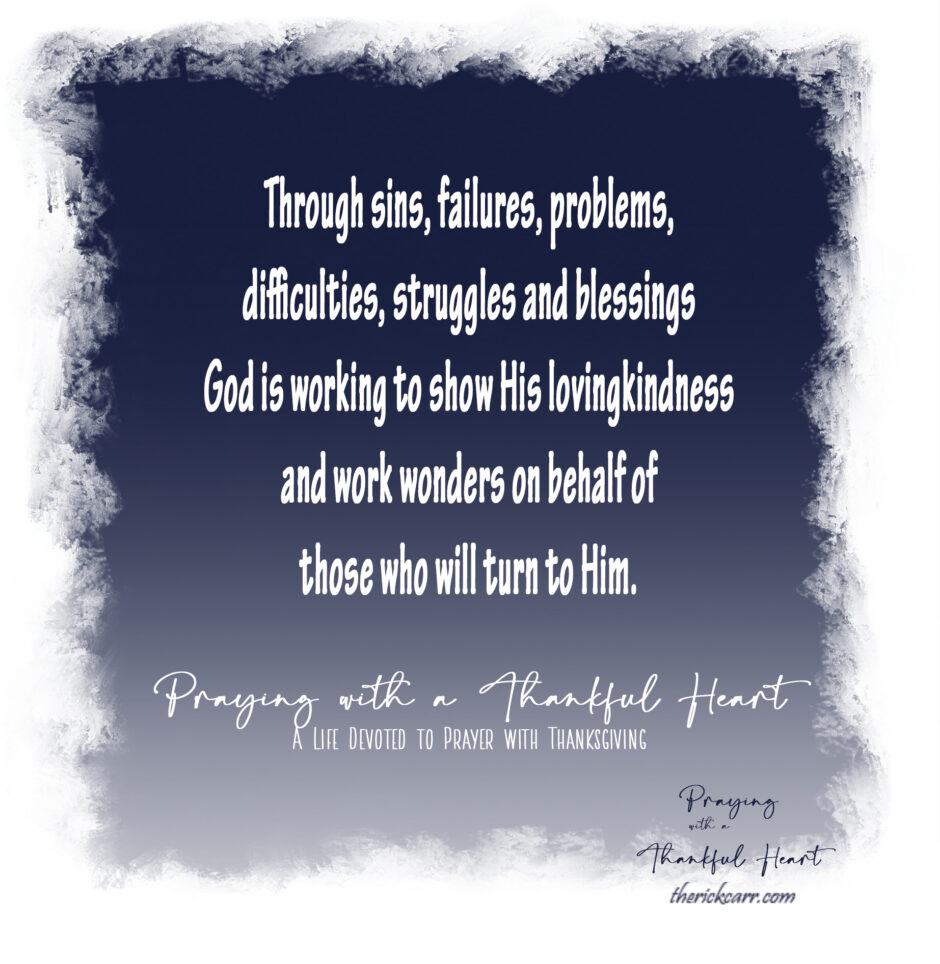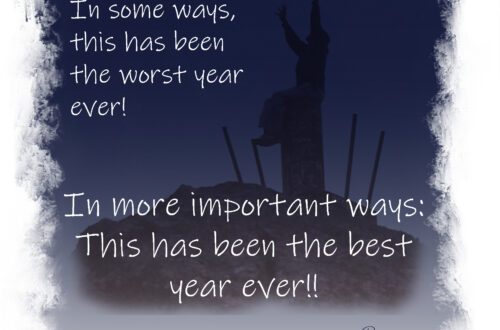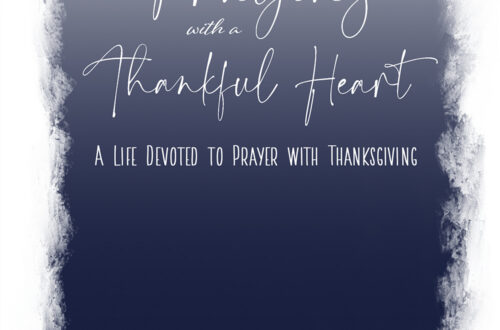Many years ago, in December, going into a new year, I asked the Lord for “a verse for the year”—a verse that might be a theme for the coming year, or something He wanted to teach me and work into my life and character in the days ahead. He didn’t give me a verse.
Instead, He led me to Psalm 51. And kept me there for the next couple of years. I had always thought of this passage as a prayer of repentance for some great sin, as it was David’s prayer for forgiveness after his adulterous affair with Bathsheba, and the murder of her husband Urias. I mean, that’s pretty heady stuff, and things of which most of us will never be guilty. I found it to be a remarkable experience, learning more about God’s grace, mercy, forgiveness and cleansing. It shed light on the New Testament concepts. On the other hand, the New Testament informed my reading of Psalm 51, showing how the things for which David cried out in response to his sin, were the very things provided for us by the death and resurrection of Jesus Christ.
At a time in my life when many of my peers, friends from college and seminary, are retiring from a lifetime of ministry in churches, I find myself with more to say than ever, and longing for opportunities to share what God has taught me with as broad an audience as possible. Getting my books published was part of that, but my heart overflows and I long for more opportunities to speak publicly and proclaim what God has done.
This morning, as Jechoniah (my guitar) and I worshiped the Lord in song, most of the songs were love songs—the Father declaring His love for me and I declaring my love for Him. The Accuser came along and started telling me how unworthy I am, reminding once again of long past (and long ago forgiven) sins and failures. It was kind of like David in Psalm 51:3—”My sin is ever before me.” I have often wondered if my failures were why God led me away from professional church ministry, if maybe they disqualified me from serving in that way. That was the direction the enemy began taking me this morning. In response, the Lord graciously brought to mind the next verse, Psalm 51:4:
“Against You, You only have I sinned and done what is evil in Your sight
so that You are justified when You speak, and blameless when You judge.”
From my time studying this passage, reading it, praying it, living in it, I know that even though our sins affect others, just like David’s sins did, ultimately, our sin is against God, and Him alone. He alone is Holy. He alone sets the standard of moral absolutes, of right and wrong. When we sin, it is not just that we did something that was wrong in His point of view. We did it in His sight—right in front of Him. Not only does He see it as sin, He sees our sin. He knows it. As a result, He is totally within His right to speak out against us, and however He judges us, He is not at blame.
Today, He poured contempt on princes (demonic influences and accusers) and made unrighteousness shut its mouth (see Psalm 107:39-43). He simply reminded me what He speaks, and what His judgement of me is. Because of the blood of the Lamb, I am purified, clean, washed whiter than snow, with a clean heart and a renewed steadfast spirit (Psalm 51:7-10). I am holy and blameless before Him (Ephesians 1:4). I am/you are redeemed by His blood, forgiven, and the recipient of His lavish grace (Eph. 1:7-8). I am/you are light in the Lord (Eph. 5:8). I am/you are qualified to share in the inheritance of the saints in Light (Colossians 1:13). I am/you are holy and beloved (Col. 3:12). These are the things He makes reality in my life. These are the things He speaks. This is His judgement on those who seek and follow Him.



